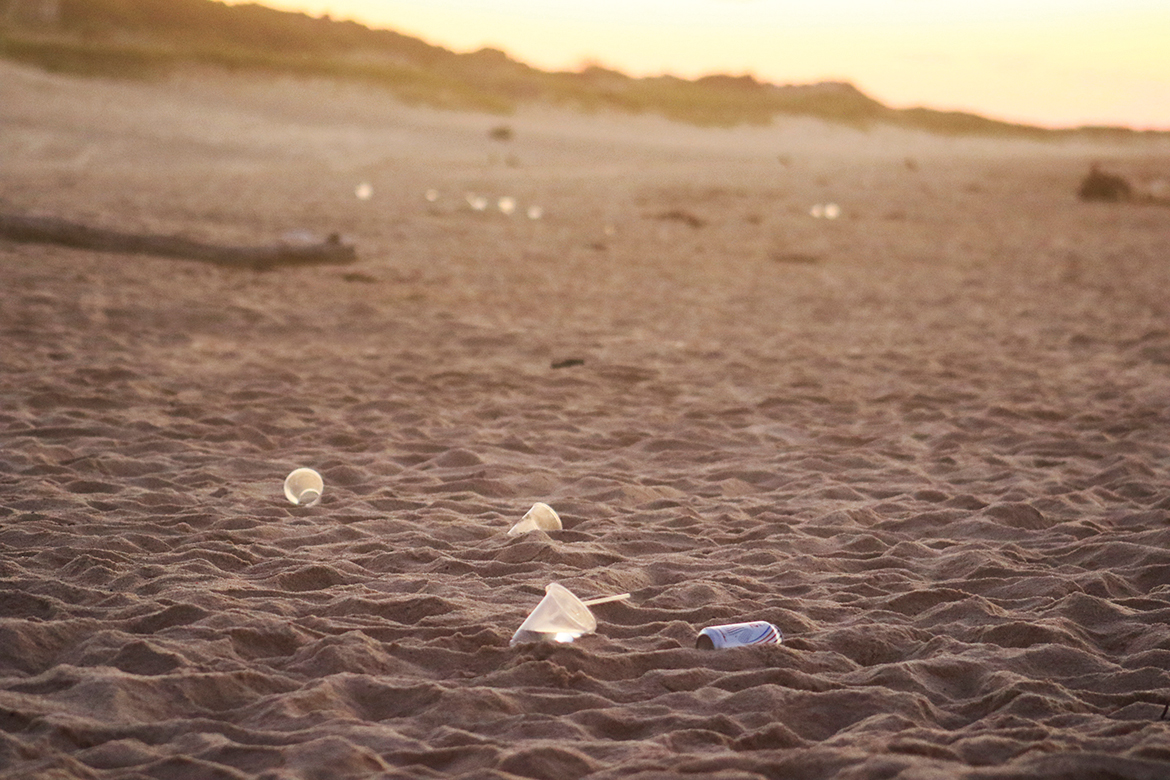The Last Straw?


Southampton Town can cut down on the nearly 20 million straws and eight million Styrofoam cups discarded each year with its ban on plastic straws and polystyrene beginning Wednesday, May 8.
Plastic straws and stirrers, and polystyrene cups, clamshell to-go containers, coolers, and loose fill commonly referred to as packing peanuts or popcorn, will no longer be available for use or purchase at stores within the town, minus the handful of plastic straws allowed to be on hand as per the Americans with Disabilities Act. Non-plastic stirrers may be allowed at self-service stations following a potential resolution of the adopted bill, which was scheduled to be up for vote at the May 7 special town board meeting, results of which were not available by press time.
Supervisor Jay Schneiderman commended Councilwoman Julie Lofstad, the sponsor of the local law.
“I have to applaud you,” he said to Lofstad May 2. “It’s great seeing you move this forward. I thought it would be a lot more controversial, but it turned out to have a broad base of support.”
He mentioned when out with his family, his son received a paper straw with his milkshake, noting how local establishments have already voluntarily started the changeover. Many restaurants had done so beginning last summer when the Surfrider Foundation, a nonprofit dedicated to protecting the world’s oceans and beaches through an activist network, started its Strawless Summer campaign.
“A lot of our businesses really see the value in doing this,” said Councilman John Bouvier, who, along with Councilwoman Christine Preston Scalera, is a co-executive officer of the Sustainable Southampton Green Advisory Committee. “It’s great to see them on board.”
The ban is also in line with a 2012-adopted sustainability plan called Southampton 400+, which has acted as a guiding set of principles “to achieve healthy and resilient communities and natural systems.”
Lofstad said the law benefits the town three-fold — reducing harmful effects plastic and polystyrene have on humans and animals, curbing what she calls a “huge trash problem,” and educating others on how to reduce, reuse, and recycle.
“That all came together with this ban,” Lofstad said. “Behavior change is a big thing, but it can be done. We want people to recognize what you’re using, see if maybe you don’t need to use that straw, if you could use a reusable bottle. I think people are realizing we need to do something. It may seem like a small step, but it’s going to turn into something big.”
desiree@indyeastend.com



